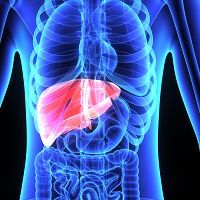Article
Saudi Arabia Gets Acquainted with Hepatitis C Drugs
Author(s):
Patients in many nations do not yet have access to direct acting antivirals for hepatitis C infection. A Saudi gastroenterologist advises colleagues to consider the drugs, despite their cost.

Global awareness of the effectiveness of new antivirals for hepatitis C is growing, even as patients in many countries do not yet have access to these drugs.
Writing in the Saudi Journal of Gastroenterology Bandar Al-Judaibi of the division of gastroenterology at King Saud University in Riyadh, Saudi Arabia and Western University in Ontario, Canada, offers a summary of available treatments and what is known about infection in Saudi Arabia.
Saudi Arabia’s residents have an overall estimated hepatitis C prevalence of 1.8%, according to a 2012 World Health Organization study. A more recent study shows the infection is higher among younger adults, a rate of 3.3%.
Al-Judaibi urges colleagues to consider direct acting antivirals (DAAs).
The most common HCV strain in that country is genotype 4, and the direct acting antivirals shown to be effective in treating infection include sofosbuvir and combinations of sofosbuvir with ledipasvir, simeprevir or daclatasvir.
Grazoprevir and elbasvir were also approved by the US Food and Drug Administration, “However a larger study is required to assess the safety and efficacy of this regimen in genotype 4 infections,” he wrote.
The infection rates in Saudi Arabia are far lower than the 15% infection rate in Egypt, but still a matter of concern.
“DAAs are very effective and well tolerated by patients with HCV<’ he concludes, even those who have cirrhosis.
“However such therapies are quite expensive,” he notes, adding a hope that “market competition may ease cost constraints in the coming years, allowing more patients to utilize DAA therapy.”



